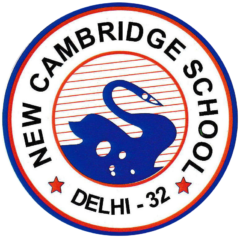Our curriculum is comprehensive and knowledge based, for developing the concepts, ideas and skills of the core subjects which goes beyond rote learning of subject content. The overall personal, social and emotional development of each student is constantly monitored to ensure a strong foundation. The entire learning programme of each student is divided into four phases. Each phase requires focus on certain areas and hence has its own philosophy and methodology that follows through it.
The school empowers students with knowledge to develop a positive approach for life in them and equips them with self-confidence, honesty and sincerity to face and overcome the challenges of life with dignity. The school follows a holistic approach for teaching which supplements the conventional classroom teaching with activities that arouse curiosity, encourage reflection and strengthen team spirit.
Education is never perceived as burden. Instead it is viewed as tool that facilitate the students to climb up the ladder of success.
The school’s integrated approach for learning is being reflected in the form of its students, playing the role of responsible global citizens who are contributing constructively to the world around.
Curriculum for the little ones is flexible to serve for their needs. We have carefully crafted activity based program for development of cognitive skills as well as motor skills in them.
Our Curriculum is inclusive. It encourages and involves the students in multifarious activities such as singing, dancing, coloring, cutting, clay modeling, painting, and so on. Due emphasis is laid on English conversation and stage exposure, for escalating their confidence level.
Examination System
Promotion is granted on the basis of whole year’s performance of the pupil and marks obtained in the final as well as terminal exams held in the school from time to time. Assessment for us is a continued process of feedback and future growth. We assess our students continuously throughout the year. This assessment is interwoven with daily learning and helps students to rate their knowledge. It enables the teachers also, for planning the next stage of learning.
The school follows the CCE (Continuous and Comprehensive Evaluation) system of evaluation for all Classes as laid down by the education department. Continuous and Comprehensive Evaluation refers to a system of school based evaluation of students that covers all aspects of development. The scheme is thus a curricular initiative, attempting to shift emphasis from testing to holistic learning. It aims at creating good citizens possessing sound health, appropriate skills and desirable qualities, apart from academic excellence.
The student shall be assessed in both scholastic and co-scholastic areas. This is believed to help reduce the pressure on the child during/before examinations as the student will have to sit for multiple tests throughout the year, of which no test or the syllabus covered will be repeated at the end of the year, whatsoever. Grades are awarded to students based on work experience skills, dexterity, innovation, steadiness, teamwork, public speaking, behavior, etc. to evaluate and present an overall measure of the student’s ability. This helps the students who are not good in academics to show their talent in other fields such as arts, humanities, sports, music, athletics, etc.
Unlike CBSE’s old pattern of only one test at the end of the academic year, the CCE conducts several. There are two different types of tests. Namely, the periodic and the summative.
All tests will comprise the student’s work at class and home, the student’s performance in oral tests and quizzes and the quality of the projects or assignments submitted by the child. Exam will be conducted four times in an academic session, and they will carry a 40% weightage for the aggregate.
At the end of the year, the school processes the result by adding the periodic tests score to the summative score, i.e. 40% + 60% = 100%.
